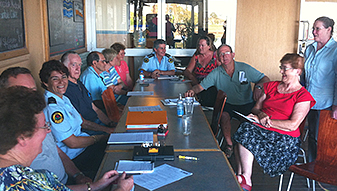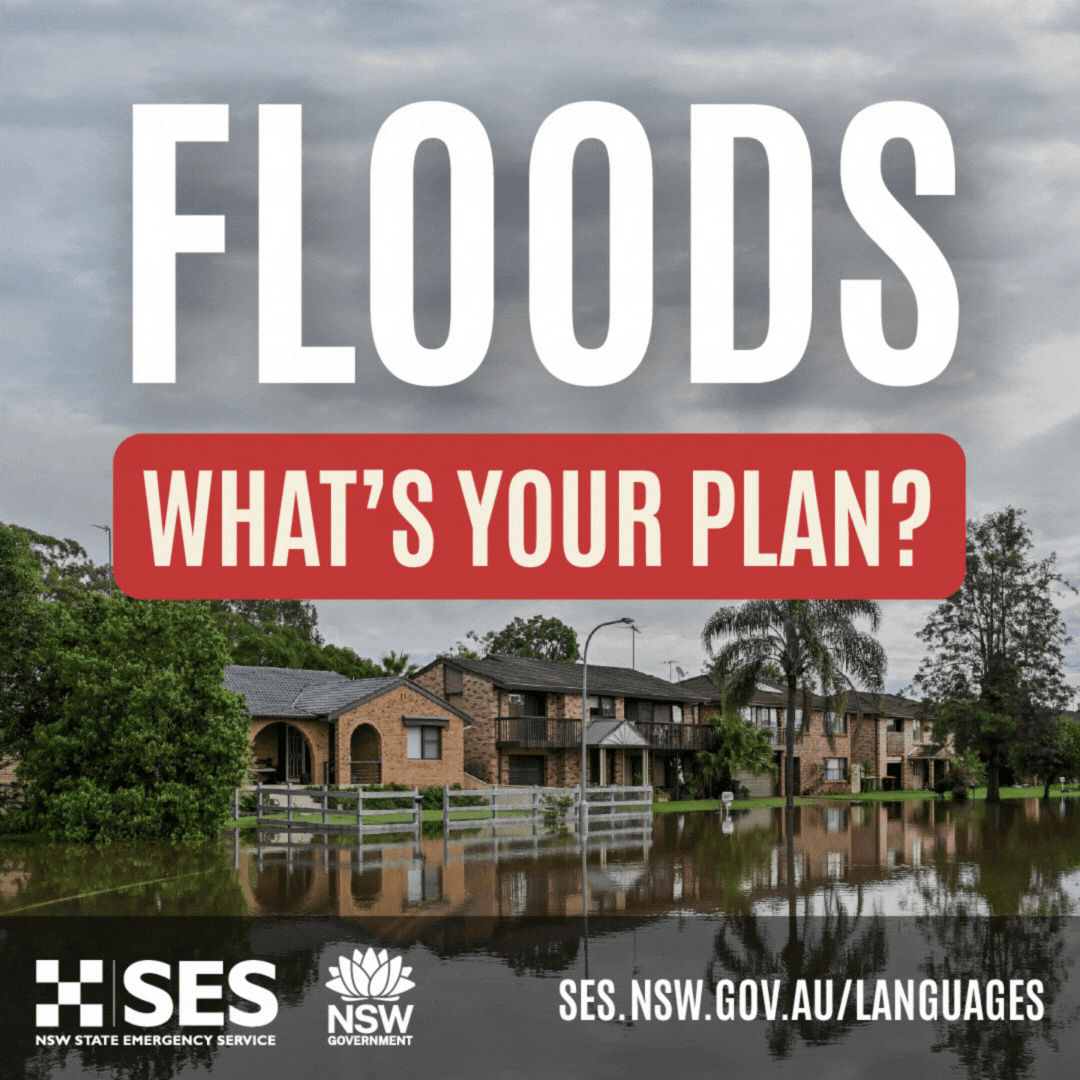NSW SES Reflects on Northern Rivers Flood Anniversary!
27/03/2019 02:11 PM
As two tropical cyclones impact on communities across the west and north eastern parts of Australia, it’s timely to revisit the key learnings from previous weather events.
This week, Northern River’s communities remember the impact of Tropical Cyclone (TC) Debbie – one of the worst to hit Australia. It was a time when emergency agencies from across the states mobilised to protect and help communities.
Two years ago on 28 March TC Debbie made landfall at Airlie Beach, Queensland. Although the category 4 system rapidly weakened, it continued over the NSW border bringing strong winds and torrential rains. On 30 March heavy rains - up to 900mm - fell in the north east part of the state.
“This was one of the worst floods to hit northern NSW in many years” says NSW SES Deputy Zone Commander Mark Somers.
"The community was on high alert, with the NSW SES State Operation Centre receiving an unprecedented volume of calls."
"We managed the most rescue events ever in one shift. There were more than 1,800 calls for help including 126 flood rescues and 12 assisted evacuations. Many rescues were unrecorded.”
The heavy rains caused major flooding and widespread devastation. In total 14 people died (6 in NSW) exacerbating the sense of loss amongst the many communities along in the river network of Tweed, Richmond /Wilson and Brunswick.
Following the floods, NSW SES visited a number of affected areas and listened to the concerns of the community.
“In conjunction with a thorough performance review, we have made changes to a number of our systems and procedures to ensure we deliver the best outcome in the future."
“The NSW SES continues to work with communities to understand their concerns and to ensure we were focused in supporting them to build a more agile and robust response network” says Mark Sommers.
Since the review, the NSW SES has actioned key strategies towards creating resilient communities within the Northern Rivers region. These were developed with consultation and input from local councils, stakeholders, residents and other emergency agencies.
These include:
- Appointment of a permanent Commander for the Northern Rivers
- Localised warnings with local input from the community and our dedicated volunteers. Our warnings aim to be timely, tailored with relevant messaging for impacted communities
- Improved relationships with the BOM and the ability to feed local information into their forecasting models
- Improved Incident Management training for both staff and volunteers
- Refined evacuation procedures – giving communities time critical information
- Working with local communities to create local solutions in response to storms and flooding
- Continuous roll out of Get Ready workshops within our communities.
- We are working with local council and other agencies to put reference markers on every telephone pole in likely impacted areas to improve people’s understanding of what the predicted heights may be
- Our volunteers continue to recruit new members and train regularly to ensure they’re able to respond at a moment’s notice to support our communities.
“Weather events are often unpredictable and difficult to manage with the complex river systems across our area. If you live work play in this area you should always be aware of the current weather situation and not be alarmed.”
“The NSW SES mission is to save lives and build resilient communities and we’ll continue to work with the Northern Rivers region to ensure the best possible outcome in future events. We would always welcome new members” says Mark Sommers.
Media enquiries: NSW SES Deputy Zone Commander Mark Somers - 02 6625 7700



